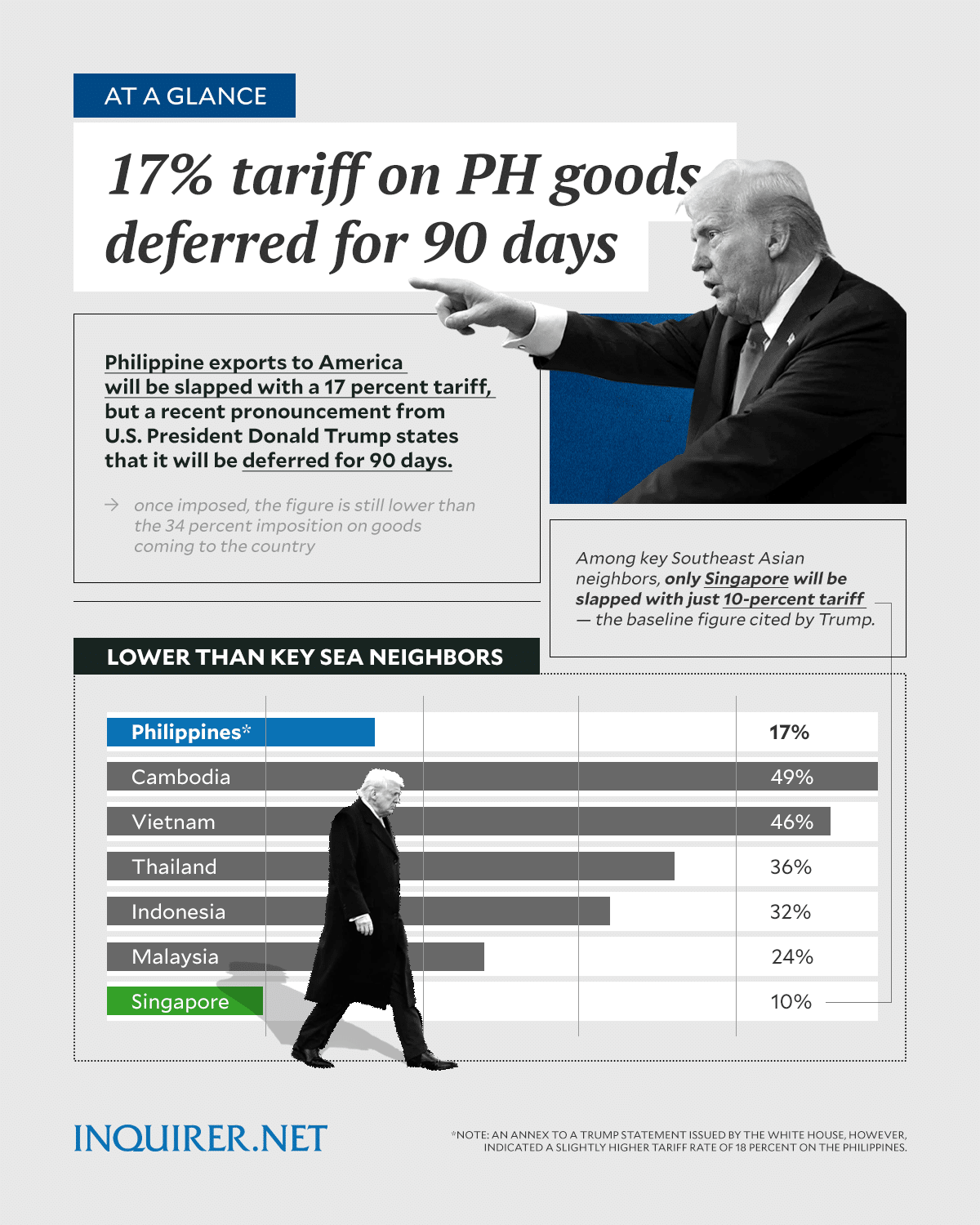No ‘retaliatory measures’ against US — Asean economic ministers

Philippine exports to America will be slapped with a 17 percent tariff, but a recent pronouncement from U.S. President Donald Trump states that it will be deferred for 90 days.
Updated at 3:52 p.m. on April 10, 2025
KUALA LUMPUR, Malaysia — Economic ministers of the Asean regional bloc committed on Thursday “to not impose any retaliatory measures” against the United States over sweeping tariffs and said they were ready to engage in talks.
“Asean, being the fifth largest economy in the world, is deeply concerned over the recent introduction of unilateral tariffs by the U.S., including the tariffs announced on 2 April 2025 and subsequently the most recent suspension on 9 April 2025,” the Association of Southeast Asian ministers said in a statement issued after a video conference meeting.
READ: Asean to discuss united response to ‘Liberation Day’
Meanwhile, in Brussels, European Commission President Ursula von der Leyen on Thursday welcomed US President Donald Trump’s decision to pause planned tariff increases as an “important step towards stabilizing the global economy”.
“Clear, predictable conditions are essential for trade and supply chains to function,” von der Leyen said in a statement. “The European Union remains committed to constructive negotiations with the United States,” she said.
The reciprocal tariffs were to take effect on April 9. However, Trump decided to defer imposition for 90 days, noting that various countries are out to negotiate with Washington.
READ: The week that Trump pushed the global economy to the brink with tariffs — and then pulled back
Asean concerns
Despite their concern, the Asean economic ministers said they were ready “to engage in a frank and constructive dialogue with the U.S. to address trade-related concerns”.
“Open communication and collaboration will be crucial to ensuring a balanced and sustainable relationship. In that spirit, Asean commits to not impose any retaliatory measures in response to the U.S. tariffs,” they said.
The special meeting was chaired by Malaysia’s Minister of Investment, Trade and Industry Tengku Zafrul Aziz. Malaysia holds the rotating chair of the 10-member regional bloc.
Its members, which count on the United States as their main export market, were among those hit with the toughest levies by US President Donald Trump.
Manufacturing powerhouse Vietnam was hit with a 46 percent tariff on exports to the United States while neighboring Cambodia — a major producer of low-cost clothing for big Western brands — was slapped with a 49 percent duty.
The other ASEAN members hit with hefty tariffs are Laos (48 percent), Myanmar (44 percent), Thailand (36 percent) and Indonesia (32 percent).
Malaysia, Southeast Asia’s third-largest economy, was hit with a lower tariff of 24 percent.
Brunei also faces a 24 percent tariff, while the Philippines was hit with 17 percent and Singapore 10 percent.